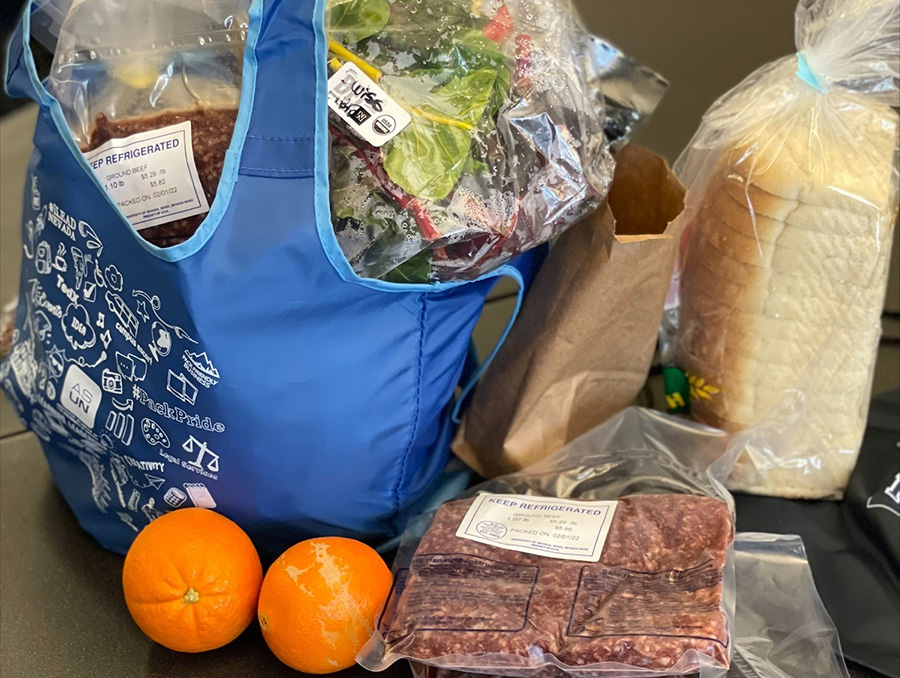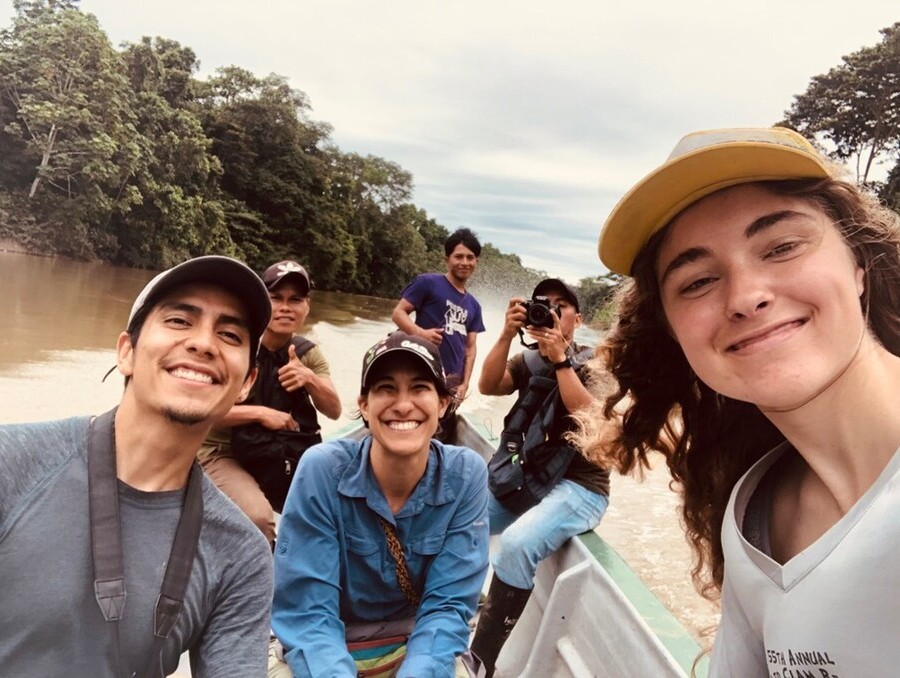University of Nevada, Reno students and other members of the University community experiencing food insecurity can now access locally sourced ground beef and produce through the University’s on-campus food pantry, Pack Provisions. The meat and produce is supplied by Wolf Pack Meats and Desert Farming Initiative, programs of the University of Nevada, Reno Experiment Station. The Experiment Station is a unit of the University’s College of Agriculture, Biotechnology & Natural Resources.
One in four students at the University reported experiencing food insecurity, according to the 2020 University Center for Student Engagement Civic Engagement survey. During the 2020-2021 academic year, visits to Pack Provisions, a service provided by the Associated Students of the University of Nevada and managed by the Center for Student Engagement, nearly doubled to more than 4,000 visits compared to the previous year.
Pack Provisions provides perishable and nonperishable foods, grocery funds, school supplies, hygiene items and more to University community members. It is not government funded and relies on donations and partnerships.
“Right now, we have fresh produce, dairy products and shelf-stable items,” Hanin Abboud Rodriguez, the student engagement outreach coordinator who oversees Pack Provisions, said. “With the addition of fresh meat, it has expanded the opportunity for students to cook a balanced meal at home. It is hard for students to study and be successful in the classroom if they are hungry, so we are thankful for these partnerships to help fight food insecurity.”
The pantry began its new partnership with Wolf Pack Meats in January 2022. Located at the Main Station Field Lab in east Reno, Wolf Pack Meats provides U.S. Department of Agriculture-inspected harvesting and processing services to local farmers and maintains its own herd, which it uses to study ways to produce meat in greater quantities with higher quality. It offers students the opportunity to learn the ins and outs of meat technology while using the industry’s best machinery. The pantry currently purchases around 150 pounds of ground beef a month from Wolf Pack Meats.
“Part of our mission is serving the university community, and this collaboration with Pack Provisions is one way we can do that,” Tom Kulas, Wolf Pack Meats operations manager, said. “It has been rewarding to see students benefiting from our work.”
The pantry has been partnering with the Desert Farming Initiative for three years. The Initiative, located at the University’s Valley Road Field Lab near campus, runs a commercial farm, including orchards, open fields, hoop houses and a greenhouse, and seeks to advance climate-smart farming and food sovereignty in the region through demonstration, education, research and outreach. The partnership between Pack Provisions and the Initiative is supported by grants and donations.
“The partnership has grown significantly,” Jill Moe, director of the Initiative, said. “We’ve went from having periodic donations of extra produce to Pack Provisions to now having year-round weekly deliveries of fresh organic fruit and vegetables from the University farm to feed students in need. It’s now truly a model ‘farm-to-food-pantry’ program.”
To encourage consumption of fresh produce in the larger University community, the Initiative will also sell fresh produce on-campus twice each week through the end of the spring semester, 2 to 4 p.m. Tuesdays at the Nye Hall Plaza and 9 to 11 a.m. Thursdays at the Fleischmann Agriculture breezeway. Pack Provisions will also be on site with other food items that can be combined with the produce to create a dish. The first two farm stand events will be held on March 29 and March 31.
















